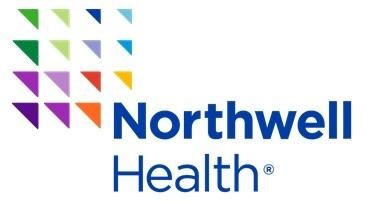Northwell Announces Center for Maternal Health, Major Initiatives to Reduce Severe Health Risks Among Black Women
Northwell Announces Center for Maternal Health, Major Initiatives to Reduce Severe Health Risks Among Black Women
NEW HYDE PARK, N.Y.--(BUSINESS WIRE)--Northwell Health today announced the launch of a Center for Maternal Health, the linchpin in a high-tech, high-touch campaign to reduce the country’s maternal mortality rate — the highest among the world’s industrialized nations — and specifically to address health risks facing Black women in America, who are three times more likely to die from pregnancy-related causes than whites. The new Center — part of the Katz Institute for Women’s Health, the only network of experts devoted to every aspect of women's health — takes a 360-degree approach to improving maternal health, working throughout the continuum of care and in the community to address health conditions that can occur from pre-conception through the first year after delivery, as well as social determinants that raise the risk of those problems among Black women.
“Women in the United States face an unacceptable level of risk during pregnancy and childbirth, and the danger facing Black women is a national crisis,” said Michael Dowling, Northwell Health’s president and CEO. “We must do better and we can do better. Today, we are pledging to mobilize our entire health system to rectify this shameful health disparity so that Black women and their babies can flourish.”
The Center encompasses a multitude of programs focusing on care in the hospital and out, as well as efforts that leverage community relationships to address complex factors that can operate over decades and ultimately raise the likelihood of pregnancy-related dangers. For instance, the Maternal Outcomes (MOMs) Navigation program provides additional support to high-risk women outside the health care setting — between prenatal appointments or in the postpartum period at home. Results from a 20-month pilot program at three of Northwell’s largest facilities are promising: The MOMs Navigation program reduced hospitalizations caused by pregnancy-related, life-threatening problems by 47% among participating women — and by 69% among participating Black women.
The program uses objective, data-driven measures to automatically identify obstetric patients at increased risk of complications — a move that helps prevent lower referral rates for Black women, which research has flagged as a national problem.
“We don’t wait for a referral,” said Zenobia Brown, MD, senior vice president and associate chief medical director, Population Health. “We use a population-health approach to identify moms who can benefit most and then remove any barriers to their care. Our mission is to provide support, advocacy and connection to needed services, empowering women to be in charge of their own health care.”
The Center for Maternal Health comprises numerous other programs, including the MOMs Collaborative, which disseminates information to clinicians inside and out of the health system to ensure broad adherence to best practices, bring down C-section rates and reduce adverse outcomes.
Another effort is led by Northwell’s Community and Population Health team, which is working with community provider organizations located in medically underserved areas on a collaboration that will focus on women receiving prenatal care: If a patient has symptoms or a condition requiring more advanced medical attention, the collaboration will facilitate a seamless connection to a Northwell specialist. In addition, the team partnered with a pharmacy chain that donated 1,000 bottles of low-dose aspirin, targeting the medication to practices that work with medically underserved women at high risk of preeclampsia, a potentially deadly pregnancy complication that involves high blood pressure and can cause seizures. Low-dose aspirin is recommended as preventive treatment for women at increased risk of the condition.
Northwell is also exploring high-tech solutions. It is part of a joint venture formed last year to launch artificial intelligence-driven companies, including one developing an AI-based algorithm to more quickly identify expectant mothers at increased risk of preeclampsia in order to intervene earlier. Along with traditional clinical markers, this algorithm will take into account socioeconomic factors that raise the risk of the disorder.
“The high rate of severe maternal health problems among black women is a complex, multivariant problem and we know it will take a complex, multilayered approach to address this health inequity,” said Michael Nimaroff, MD, who leads the MOMs Collaborative. “This is a learning process, and Northwell will continue to adapt as needed. We are in this effort for the long haul.”
About Northwell Health
Northwell Health is New York State’s largest health care provider and private employer, with 22 hospitals, 830 outpatient facilities and more than 16,600 affiliated physicians. We care for over two million people annually in the New York metro area and beyond, thanks to philanthropic support from our communities. Our 78,000 employees – 18,900 nurses and 4,900 employed doctors, including members of Northwell Health Physician Partners – are working to change health care for the better. We’re making breakthroughs in medicine at the Feinstein Institutes for Medical Research. We're training the next generation of medical professionals at the visionary Donald and Barbara Zucker School of Medicine at Hofstra/Northwell and the Hofstra Northwell School of Nursing and Physician Assistant Studies. For information on our more than 100 medical specialties, visit Northwell.edu and follow us @NorthwellHealth on Facebook, Twitter, Instagram and LinkedIn.
Contacts
Lisa Davis
Northwell Health
205-542-8053
ldavis9@northwell.edu

